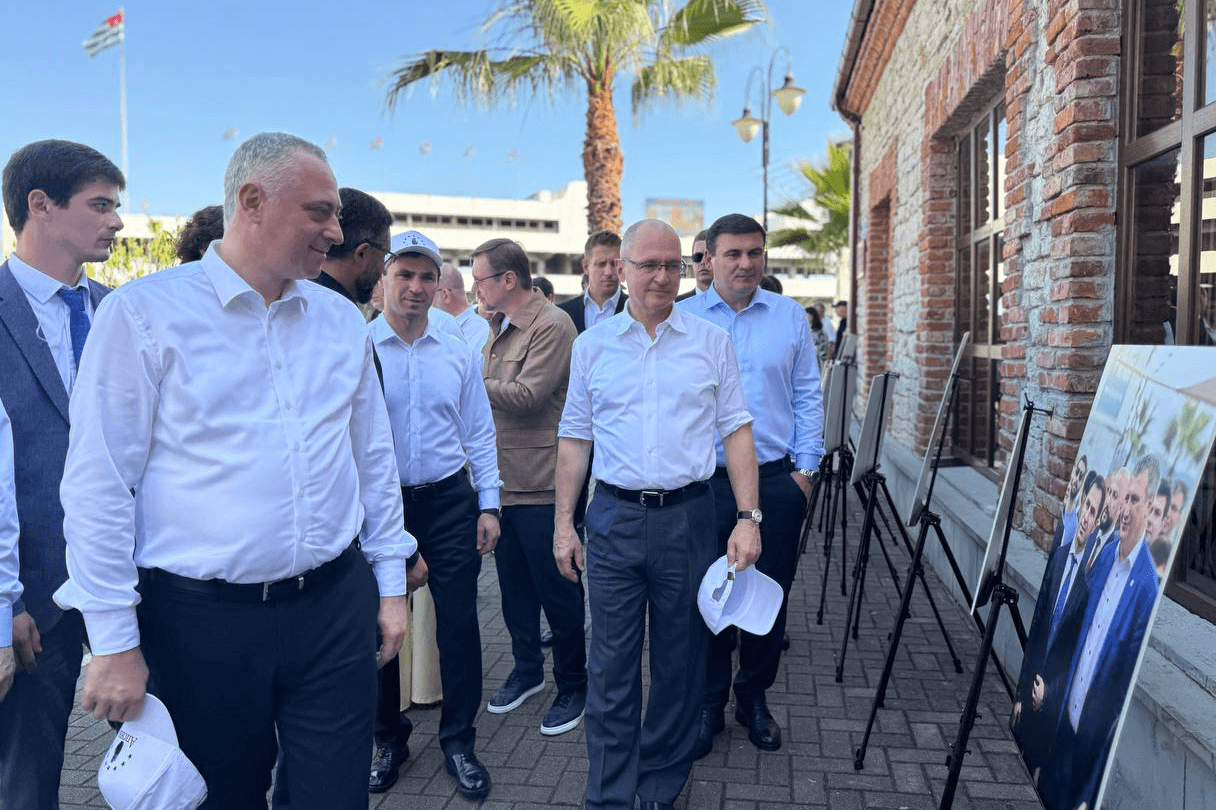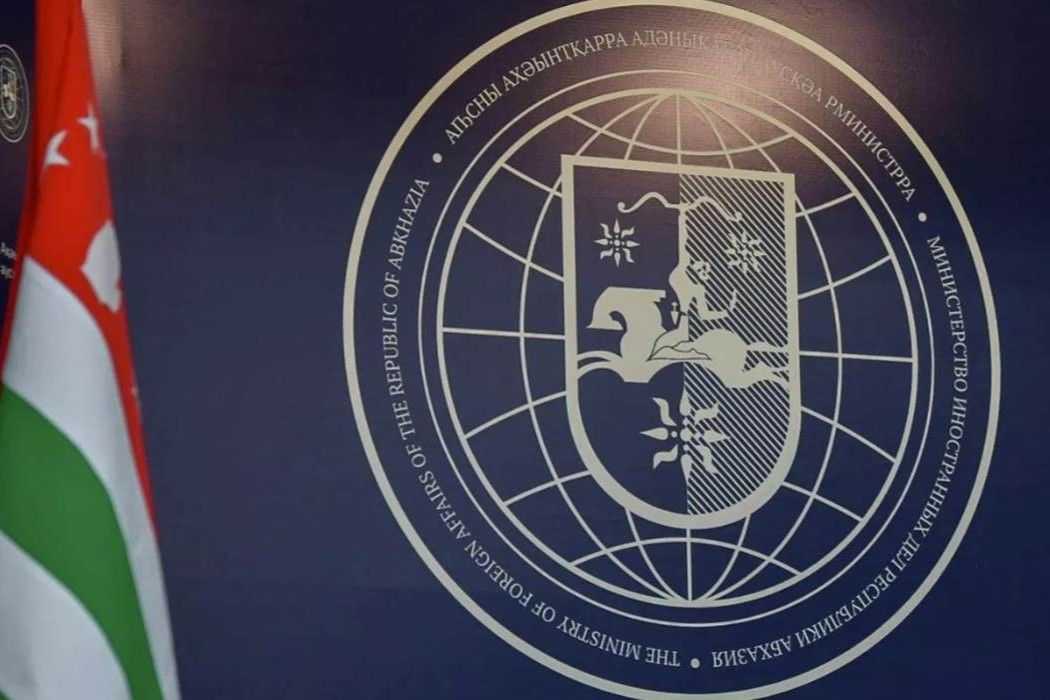
Abkhazia braces itself for a record-breaking tourist boom — but many fear that the current tourism infrastructure might buckle under the strain.
The 2022 summer tourism season in Abkhazia is expected by many to be the most profitable in decades, as they brace for the projected arrival of an unprecedented wave of Russian tourists.
In July 2021, the Ministry of Tourism announced a record number of tourists over the past 30 years, at around 1.5 million vacationers — more than double the number the republic had recorded in 2019.
This year, everyone involved in the tourism industry expects this record to be broken, and they are not afraid to invest every last penny to expand their businesses. The Kvitsinia family decided to break its own piggy bank to use three years’ worth of savings to construct rooms for vacationers in their relatives’ small hotel.
When the ruble had a sharp decline following Russia’s invasion of Ukraine, the Kvitsinias moved quickly.
‘We were saving money to invest in a business, and we wanted to raise more and buy land, but the economic situation showed us that we needed to act immediately’, Yesnat Kvitsinia told OC Media.
‘If the season takes place, we will be able to recoup the investment by winter’, he said hopefully. ‘This is our only money. Investing it in tourism, we calculated the risks like this: if a war starts, then the money in the bank will not help us, but if everything goes well, then we will be able to earn money and then expand our business.’
Others, such as Inga Ashuba, have decided to vacate their own homes with plans to rent them to tourists. While Bargandzhia currently resides in the suburbs of Sukhum (Sukhumi) for ₽10,000 rubles ($153) a month, she rents out her apartment in the city centre near the beach for ₽3,000 ($46) a day.
‘Almost all the days from June to October are already booked for me’, she said.
Urban Bistro, a new addition to Sukhum’s cafes, usually only operates on weekdays until 15:00, since its main source of income comes from workers of nearby institutions and companies. Its owner, Viola Bargandzhia, told OC Media that ‘only the summer can justify the cafe’s work’.
‘This is only our first year, so we don’t know what our earnings [will be like] in the summer, but our friends in Gagra, at the height of the season, earn up to 40,000 rubles per day ($615), and in winter, about 8,000 ($123 dollars)’, she said.
‘I hope that hungry tourists will come to us.’.
Even outside Sukhum, in New Athos (Akhali Atoni), Lime, a mini-hotel, is fully booked all throughout June, July, most of August, and September.
‘If there are the same number of vacationers as last year, this is fine with us, but if you look at the booking, there will be much more people this summer’, the hotelier said.
She said she believes that the key to a successful tourist season is not to increase the number of tourists, but rather to extend the season, as Abkhazia already struggles with providing enough accommodation to tourists.
This sentiment is shared by Veronika Vedyanina, a travel agent based in Sukhum, who says that most tourists who come to relax in Abkhazia seek luxury experiences.
‘Many began to look for villas with pools and private beaches. And it is difficult for me to explain to people who used to spend their holidays in Greece or Spain that there are no beaches closed to the public in Abkhazia, and that not everything can be bought with money’, Vedyanina said. ‘Abkhazia is more about wildlife and extreme recreation’.
The prices that tourists could pay might also be a surprise for them, she said.
‘People are ready to pay a lot, but in Abkhazia, one cannot get much for the price that they are used to paying. The same money they use to pay for villas or penthouses abroad, in Gagra or Pitsunda would pay for an ordinary suite if the hotel has a pool.’
The travel agent recalled dealing with a prospective client who had been looking at vacation options in Abkhazia for a long time, until finally settling on a tour to Antalya — significantly farther away from home.
Anna Kalyagina, president of the Abkhaz Tourism Union, also confirmed that the level of bookings they rely on when forecasting the season shows that the summer will be about the same as last year and even better.
‘We noticed a slack in reservations only from the end of February to April, when the special military operation began in Ukraine. Apparently, people got scared and began to look at what would happen next, but now it is clear that there are no fewer people who want to relax in Abkhazia than in 2021’, she said.
Kalyagina also warned that Abkhazia does not have enough resources, particularly in the service sector, to receive such an influx of tourists, especially as it does not have the institutions to train enough personnel. ‘We need to revive such institutes’, she stressed. ‘In the meantime, our main task is not to disgrace ourselves. Because I know cases when tourists who first arrived in Abkhazia were disappointed.’
She also pointed out that there is an urgent need to deal with security issues, particularly those pertaining to medical insurance, trail marking, and clearing access roads to various natural attractions.
The situation has not gone unnoticed among the government bureaucrats in Sukhum, where the city administration is actively preparing for the upcoming season by setting up new benches and planting various flora across the main squares and roads of the city.
Meanwhile, some are already beginning to take the profits of the tourist boom to the bank — ticket prices to numerous attractions in Abkhazia, such as the Ritsa Reserve and the New Athos Cave, have, as of this year, nearly doubled.
The primary geographic terms used in this article are those of the author’s. For ease of reading, we choose not to use qualifiers such as ‘de facto’, ‘unrecognised’, or ‘partially recognised’ when discussing institutions or political positions within Abkhazia, Nagorno-Karabakh, and South Ossetia. This does not imply a position on their status.






